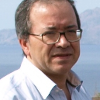Project TSHAPS addresses Priorities no. 1 and 2 of the Sendai Framework for Disaster Risk Reduction (2015-2030): to understand disaster risk, and to strengthen disaster risk governance. The risk addressed is the occurrence of earthquakes and its impacts in the African CPLP countries, more specifically Angola and Sao Tomé e Príncipe (STP). Project TSHAPS is aligned with a key topic of the AKDN-FCT Protocol, namely sustainable energy systems (dams and power stations being sensitive infrastructures) and urban development. The central goal of Project TSHAPS is capacity building.TSHAPS will i) install two broadband seismic stations in STP and assist in the upgrade of seismological monitoring in Angola; ii) promote hazard assessment in Angola; iii) apply Earth Observation techniques, namely satellite imagery and drone-acquired LiDAR data, to further the identification and study of active structures; iv) conduct fieldwork investigation of seismogenic faults, to improve the mitigation of seismic risk; v) set up a training center in Observatory Seismology in Mindelo, Cape Verde, serving West Africa. Development and economic growth have as a negative side-effect the increase of exposure to natural hazards. Events that would go almost unnoticed a century ago in most African regions would now - and in the foreseeable future - potentially lead to the disruption of life-supporting infrastructure such as dams and power plants, communication networks or high-rise buildings. In developed regions of the globe this increase in exposure is countered by improvements in monitoring, awareness, prevention and preparedness, to the point that they become less prone to losses due to natural hazards. In contrast, exposure to natural hazards is on the rise in developing countries. It is therefore imperative that such benefits of science and technology be extended to all the regions of the globe. International cooperation in seismology paved the way for the broader cooperation in Earth Sciences that is now taking place under the European Plate Observing System (EPOS), the ESFRI Research Infrastructure created in November 2018. Project EPOS-SP (2020-2022) will include a Task entitled “Structuring EPOS collaboration with Africa and Latin America” (led by the TSHAPS PI). It is expected that seismological cooperation will spearhead broader cooperation in Earth Sciences between African and European stakeholders. TSHAPS aims at securing a significant participation of the target CPLP Countries in the cooperation activities of EPOS-SP. TSHAPS will benefit from donations of seismological equipment by IST (Portugal) to STP. Support to revamp the existing network in Angola will also be provided. TSHAPS will provide training in hazard assessment, allowing technology transfer to the State Laboratories and capacity building at all levels of seismological observatory practice, from station deployment to maintenance to routine data analysis.
On going
About
Keywords:
Natural and Technological Hazards
Start Date:
End Date:
CERENA Role:
Coordinator
Coordinator/Local PI
Integrated Member
Assistant Professor
CERENA Team
Proponent Institution
IST-ID - Associação do Instituto Superior Técnico para a Investigação e Desenvolvimento
Funding Programme
FCT - Fundação para a Ciência e a Tecnologia and Aga Khan Foundation
CERENA Funding
242 290,80 €



